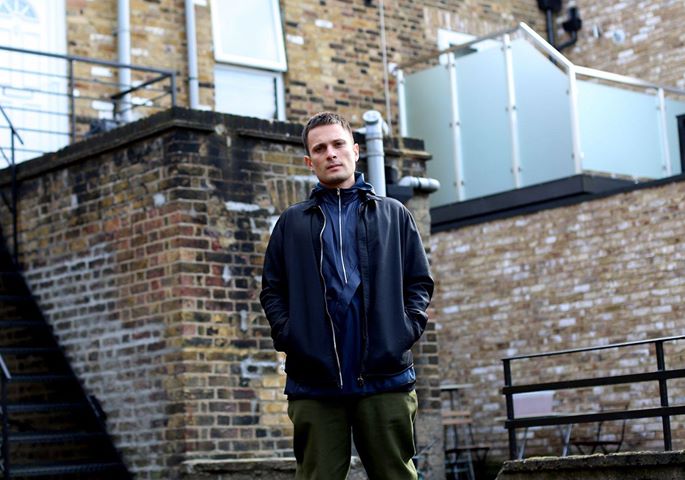PAN – Electronic music’s adventurous rebellion turns 10
PAN 10 Years feat. Bill Kouligas, Puce Mary, Tzusing, Eartheater, Amnesia Scanner, Objekt and M.E.S.H., Berghain, October 2018 – live report by Sandra S. Borch
Since its launch 10 years ago, the Berlin-based label has touched noise, drone, improv, techno, dub, ambient, and several other genres, stretching and redefining electronic elegance. PAN is as messy as it is elegant. PAN is complicated. PAN is hard to categorize neatly in specific words because we do not have such nuanced language for talking about music yet. Sandra S. Borch reports from PAN’s 10 year-celebration at Berghain, where PAN is still in the forefront of a scene that is far more complex than the common refrain of “adventurous electronic music” would suggest.
Elegance might be a misplaced word to use for PAN. But it is a label with a playful, labyrinthine structure combining rave attitude with the avant-garde passion, in such a way that it makes perfect sense and great admiration for the fact that it is still possible to make music that is new and radical at the same time in 2018. The album covers are perhaps the first clue of elegance and a clue that these are not average listening records. Instead, label head Bill Kouligas’ shapes of tangles, forms and colors create aesthetically pleasing covers that throughout the years have made an example and raised the bar for graphics.
The curative masterstroke of PAN is its structure, or the lack of it. However, the label puts an elegance to the misplaced noises. For the listeners to lose their bearings is certainly a provocative approach to music. But it is this state of uncertainty that allows the listeners to be more attentive to the structure, compositions and to each element of sound. Alongside early PAN releases by Mohammad, Lee Gamble, Valerio Tricoli, Aaron Dilloway and Mika Vainio (R.I.P), Rashad Becker’s “Traditional Music of Notional Species”-records are examples of how the sounds create a language to listen to and understand, instead of a beat to hear. It is here, among these releases, where you get lost, but start to be more aware of the details. The rather unconventional compositional logic is the case of TJ Hertz aka Objekt’s impressive artificial work on “Flatland” or of M.E.S.H’s “Scythians”, often relying on sharp sounds, broken beats. Together with artists such as Jar Moff, Yves Tumor and Mat Dryhurst, M.E.S.H. invented a soundscape that many artists later has imitated. And recent releases by Toxe, Puce Mary and Stine Janvin have shown a renaissance of the Scandinavian approach to composition and sound.
Collectively the approximately 100 PAN releases stand as examples of dismantling styles with its searing sound-design and synchronic compositions, morphing and mutilating into a complex synthetic-acoustic sonic mood.
Is it possible to write about PAN without projecting expectations of creative expression as political art? The idea that music is an act of rebellion against authority and dominating structures is a persistent perspective of art criticism, especially when it comes to experimental music from the underground, where it frequently knocks other issues to the periphery. However, the music released on PAN has a common feature of transmitting radical messages through sound and through the artists’ uncompromising attitude. It is stated clearly back on Jar Moff’s release “Financial Glam” and “Commercial Mouth” and also Billy Bao “Urban Disease” , James Hoff “How to Wheeling Feel when the Ground Walks Away”, and recently, on Amnesia Scanner’s release “Another Life”. It is difficult to ignore the artistic whistleblowers at PAN demanding to be heard on many levels.
All of this was celebrated last month at Berghain with a lineup that featured Puce Mary, Eartheater, Amnesia Scanner, Tzusing, Objekt, M.E.S.H. – and Bill Kouligas himself opening the night behind the decks.
Danish noise-artist Puce Mary, who signed to PAN this year after a series of releases with Posh Isolation, was the first to take the live stage. She created a space that was both innocent and sophisticated, physical and about being in control of a room filled with anxiety, desire, and lust. A nice sentiment that there can be hope, even in these melancholic and disjointed, post-industrial times. She was standing over her synths feeding the sound through arpeggiators while adding filters and reverb, her sequences went from hissing, distorted noise to pounding patterns, while she took the stage with her vocals and haunting and seducing lyrics: “I want you so bad I could crawl under your skin.” As if she was performing a break-up or love affair. She was later joined on stage by a contemporary dancer, who gracefully used his body to question the norms of movement.
On normal Berghain nights the floor can be a darkened, smoked-filled room, but as the Finnish duo Amnesia Scanner forced their sound out, the smog hung so thick that you could neither see your own feet nor the person standing next to you. As their sound of avant-EDM dismantled everything around, the fog caught the sharp flashes from the strobe, which all together made it impossible to navigate. However at no point during their performance was there any doubt that it was Amnesia Scanner and they created a complete chaos in the absolutely best sense.
Then Tzusing took over starting with Prodigy’s (R.I.P) remix of “Release yo Delf” by Method Man, and later, notoriously shape-shifting Objekt was behind the decks taking the dancefloor unimaginable places. He delivered no bad mixes and just as his releases the details and techniques must be the definition of perfection. As the night’s last artist, M.E.S.H started out with the pounding drum machine and screaming voice from Mutsumi’s “Look Down at Your Feet Below” and took over the floor where Objekt left it.
It is the same with the aforementioned performances as it is with the releases from the label; due to the aesthetic variety the impressions are quite amorphous. However, they do leave a one common lettermark: P-A-N.
To say the label has been an influence on the electronic music of today would be an understatement. PAN’s fine-tuned sound and its fragmentation, creatively and politically, throughout this decade, is defining what experimental music means today, and shows an alternative for tomorrow.



